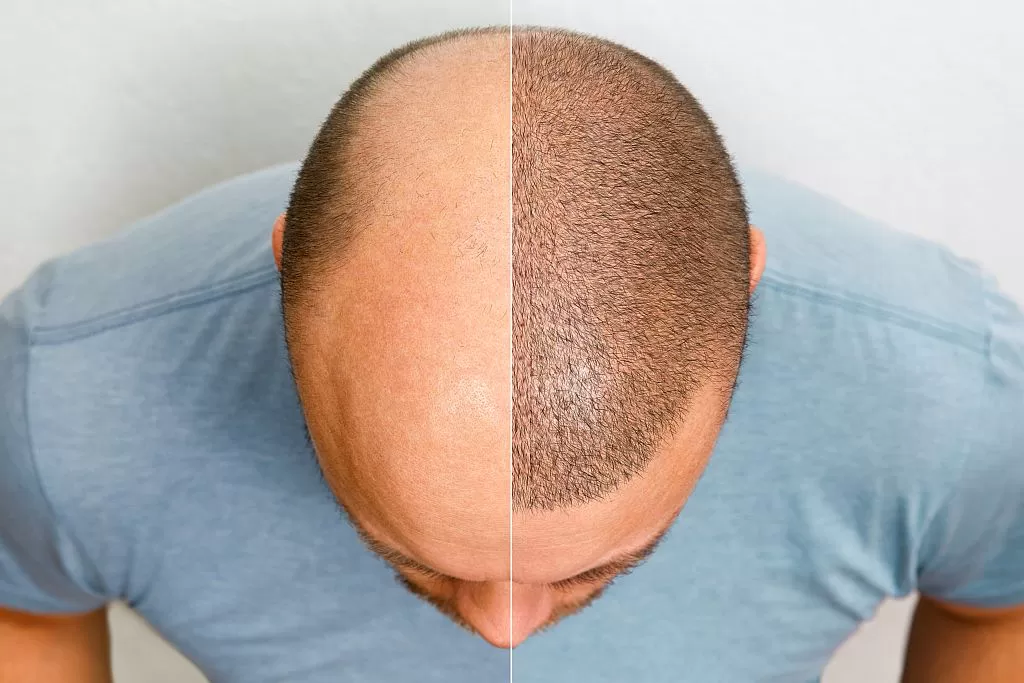A hair transplant in Riyadh is a crucial first step in your hair restoration journey. It's an opportunity for you to meet with a qualified surgeon and their team, discuss your concerns, and understand the best course of action for your unique situation. Here's what you can generally expect during a hair transplant consultation in Riyadh:

1. Initial Welcome and Paperwork: Upon arrival at the clinic, you'll typically be greeted by a patient coordinator or receptionist. You'll likely fill out some forms, including your medical history, any current medications, allergies, and your history of hair loss. This information is vital for the surgeon to assess your candidacy and overall health.
2. Detailed Hair Loss Assessment: This is the core of the consultation. The surgeon or a highly trained specialist will perform a thorough examination of your scalp. This assessment usually includes:
- Analyzing your hair loss pattern: They will identify the extent and type of your hair loss (e.g., male pattern baldness, female pattern thinning, alopecia areata, etc.).
- Assessing donor area quality: The back and sides of your head are typically the donor areas. The surgeon will examine the density, texture, and health of the hair follicles in these regions to determine if you have sufficient grafts for the desired outcome. They might use a densitometer to measure hair density.
- Evaluating scalp laxity: For FUT (strip method) cases, scalp laxity is important, though FUE and DHI are more prevalent in Riyadh.
- Discussing your medical history: The surgeon will review your medical history to identify any conditions (e.g., diabetes, hypertension, autoimmune diseases) or medications that might affect the procedure or recovery. Blood tests may also be recommended to ensure you're eligible for the procedure.
3. Discussion of Your Goals and Expectations: This is your chance to articulate what you hope to achieve from the hair transplant.
- Express your desired hairline: Bring photos of hairlines you admire (if applicable) or discuss your aesthetic preferences. The surgeon will work with you to design a natural-looking hairline that complements your facial features and age.
- Discuss density expectations: Be realistic about the density you can achieve. The surgeon will explain what is surgically possible given your donor supply.
- Long-term planning: Hair loss can be a progressive process. The surgeon will discuss a long-term plan, considering future hair loss and potentially staged procedures to maintain a natural appearance over time.
4. Explanation of Hair Transplant Techniques: The surgeon will explain the hair transplant techniques they offer, primarily focusing on FUE (Follicular Unit Extraction) and DHI (Direct Hair Implantation), which are popular in Riyadh.
- They will describe how each technique works, its advantages, disadvantages, and suitability for your specific case.
- They might explain the use of advanced technologies like robotic assistance (e.g., ARTAS) if available at their clinic.
- They will discuss the expected healing process and downtime for each method.
5. Graft Estimation and Cost Discussion: Based on the assessment and your desired results, the surgeon will provide an estimate of the number of grafts needed. This is a crucial factor in determining the cost.
- You will receive a detailed quote for the procedure, which should ideally include all associated costs (surgeon's fees, facility fees, anesthesia, post-operative medications, and follow-up appointments).
- This is the time to inquire about financing options, such as in-house installment plans or partnerships with third-party medical financing companies (like Tabby or Tasheel Finance, which are active in Saudi Arabia).
6. Review of Before-and-After Photos: Reputable clinics will showcase their work through a portfolio of before-and-after photos of previous patients. This allows you to visually assess the quality of their results and understand what you can expect.
7. Pre- and Post-Operative Instructions: While detailed instructions will be provided closer to the procedure date, the consultation might include a general overview of:
- Pre-operative guidelines: Such as avoiding certain medications (blood thinners), alcohol, and smoking.
- Post-operative care: General advice on washing your hair, sleeping positions, and activity restrictions.
8. Opportunity for Questions: This is your time to ask all your questions. Come prepared with a list! Don't hesitate to ask about:
- The surgeon's qualifications and experience.
- The number of cases they perform annually.
- The experience of the surgical team.
- The clinic's success rates and complication rates.
- What happens if the results are not as expected.
- The long-term outlook for your transplanted hair.
- Follow-up schedule and ongoing support.
By the end of the consultation, you should have a clear understanding of your hair loss condition, the recommended treatment plan, the expected outcomes, and the financial implications. A good consultation should leave you feeling informed, comfortable, and confident in your decision.




Comments